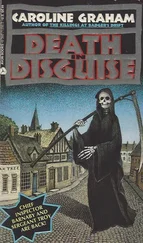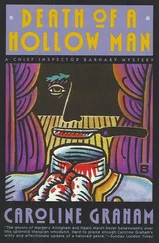As he moved about he would hear, in fancy, the whistling rush of a thousand arrows. Or the strain and creak of a cable as the trebuchet’s vast leather sling was winched into a hurling position. Gradually, over the years, these scenes became more and more vivid, incorporating not only an increasingly large amount of grisly detail but also the sound and lately even the smell of carnage.
For a long time these extraordinary historical recreations occurred only when Dennis was confined within the parameters of the war room. When he closed the door to go about his business the sound and fury immediately vanished. But lately his mind had been breached at other times. Once, to his great alarm, this happened in the office during a discussion with two of his staff. Sometimes, even when asleep, the groans of wounded men and screams of terrified women and children disturbed his dreams.
Naturally Dennis kept these frightening experiences to himself. Eventually, however, the daily memories of nighttime horrors began to wear him down and he decided to seek help. Loath to visit a psychiatrist – he was neither unhappy nor inadequate in the matter of conscious day-to-day living – Dennis finally settled on a dream therapist. Embarrassedly he told his tale. The woman listened, then suggested various interpretations that all seemed pretty daft to him. As was the suggestion that, every day for a month, he should write the dreams and visions down. But Dennis decided to give this a go and, to his surprise, it worked so well he never had cause to visit her again.
Mallory remembered speaking to his aunt once about the friendship between her companion and Dennis Brinkley. Like most people he found it surprising, even faintly humorous, and was unwise enough to say so. Carey had been angry at this implication that the unattractive and socially inept did not deserve friends. Or, in the unlikely event that they made one, that this friend should be as plain and clumsy as they were themselves.
After he had said he was sorry Carey had unbent enough to discuss Benny’s situation a little. As she saw it the relationship was grounded not only in liking, though there was that, of course, but in a tender stability arising from the mutual understanding that neither would ever do the other harm. Benny’s anguished shyness, hidden behind her blundering and rushing and general overeagerness to help was perfectly balanced and gentled into quietude by Dennis’s patient manner and genuine interest in her wellbeing. They were comfortable with each other. Once, Carey explained, she had needed to talk to Benny when Dennis was visiting and had discovered them sitting in wing chairs on opposite sides of Benny’s fireplace with all the calm and gravitas of an old married couple.
Benny knew nothing of this conversation but now, as she hurried to the front door of Appleby House, the expression on her face completely bore it out.
“Come in, Dennis. It’s so good to see you.”
“I did hesitate…a bit soon after the funeral. But I saw Kate’s car drive away and thought you might be in need of a little company.”
“You’re right, as always.”
“Are we in the kitchen?”
In no time they were settled at the scarred deal table. Benny threw away her stewed Earl Grey and made what Dennis always called “some proper char.” She set out the big Mason’s ironstone cups and saucers, yellow and blue with lovely flowers. Really they were breakfast coffee cups but Carey had believed in using anything and everything in whatever way suited you. She would cut ice cream with a fish knife if it was to hand and had once served oysters, complete with lemon slices, shaved ice and seaweed, on a three-tier cake stand. Why, Carey wouldn’t give a fig if…
“Oh, Benny. My dear.” Her tears were falling like rain. Dennis produced a large, white linen handkerchief, shook out the immaculate folds and laid it close to Benny’s saucer. “I’m so very sorry.”
“Hnuhh…hnuhh…” Snorting and sobbing Benny wrapped her arms across her chest as if in a strait-jacket, clamping them fast. She gripped her shoulders against the pain. “I was all right…when everyone was here…”
Dennis waited. He didn’t speak again and Benny was grateful. So many people had said so many things to her during the last few days. Their intentions were sympathetic but the pious generalities meant nothing. Worse, they were an irritation. What did they know of the real, true Carey? Of her relish for jokes and occasional crossness, her raucous laugh and sharp mimicry of various village worthies once their unsuspecting backs were turned. Her love of gossip, good wine and rich tobacco. Recalling all these things aloud and adding to them took so much time the tea got cold.
“Shall I make some fresh,” said Dennis. A statement rather than a question. He filled the kettle and by the time it started to whistle and shriek again Benny had stopped crying.
“Is there any cake?” Dennis asked. Not out of greed, though he did have a sweet tooth, but to distract her.
“Oh, yes, yes.” Benny started bustling about, pulling tins out of the cupboard. One fell and rolled across the floor. Then she remembered that Polly had taken home all the leftover cake from the funeral. “There’s only Battenburg.”
“My mother’s favourite.” Dennis got out some clean cups. “Though she didn’t like marzipan.”
“It isn’t home-made.” As Benny put slices of the cake on an almost translucent plate with a worn golden rim the anomaly sank in. “Didn’t like…?”
“She’d take it all off and just eat the other bits. I used to say to her, why not buy angel cake instead? That was pink and yellow if you remember, Benny?”
“Oh, yes. Stuck together with sugary grit.”
Dennis talked on. He moved from his mother’s idiosyncratic eating habits through other family stories, with one or two of which Benny was comfortably familiar, then introduced some strange neighbours who had lived next door to the Brinkleys at Pinner.
“They had a stuffed armadillo. After dark, when no one was about, they used to take it for walks.”
“How wonderful!” Benny clapped her hands with pleasure. “Was it on wheels?”
“They carried it.”
“You can’t take something for a walk by carrying it!”
As Dennis extended and embellished this entirely imaginary family, Croydon jumped on to Benny’s lap and started to purr, the first occasion for a long time. She sank her fingers into his cream and orange ruff and massaged his neck. The cat stretched out his chin to facilitate these caresses. Gradually, soothed by the gently meandering conversation, its restful pauses and the rumbling vibration beneath her fingertips, Benny’s heart became less troubled. Her earlier anxieties now seemed fanciful in the extreme. She really must try and put some sort of brake on her morbid imagination.
It was unfortunate that Dennis was preparing to deliver some information calculated to banish all this hard-won tranquillity. Gossip and the local paper made it inevitable that Benny would hear this awful news one way or the other. Knowing her so well, understanding her wildly nervous temperament, Dennis wanted to be sure it came from him.
The facts were these. At the village of Badger’s Drift, just a few miles away, an elderly man had been found battered to death in his council bungalow. His seventeen-year-old grandson, who had been living with him for the past five years, had disappeared. Neighbours testified as to ongoing rows, and the youth had already been in trouble for vandalism and fighting. The police were asking for any information as to his whereabouts, and a poster with an up-to-date photograph was already in circulation.
Benny listened, her face gradually draining of colour. When she could finally speak she cried, “What if he comes here?”
Читать дальше










